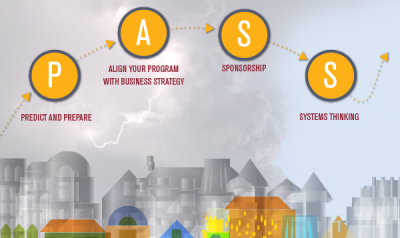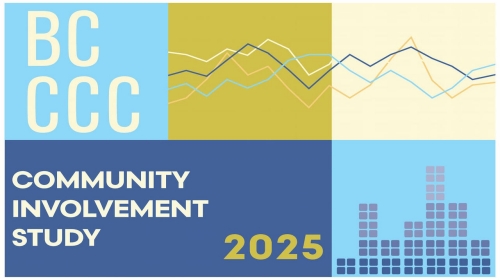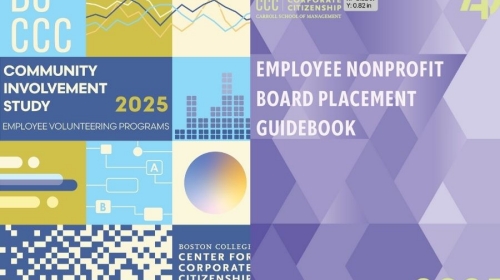WEBINAR: This webinar explores how to measure and communicate your organization's social impact with proven frameworks and strategies that matter to stakeholders.
PASS through Disruption

Corporate citizenship professionals are change-makers. The very nature of corporate citizenship work is predicated on the idea that we seek to make the world better—to create more business value AND more social value. The art and science of corporate citizenship is to identify issues that our companies are uniquely positioned to address, and work to develop processes and programs that turn challenges into opportunities. Because change is the core language of corporate citizenship CSR leaders are uniquely suited to help our companies navigate unexpected situations.
Our current context may be unprecedented, but we can apply the skills and tactics we’ve learned helping our companies grapple with other major global issues—such as climate change, human rights issues, and social inequity—and apply them here: supporting our employees, stabilizing our communities, and—ultimately—investing in future health and prosperity.
This infographic below illustrates how CSR practitioners can help companies PASS through disruption. Here, we’ve added some examples to share how some of our Center members are putting these practices into place now.
Predict and prepare. The resilient enterprise is proactive, not reactive. Looking at risks that may occur in the financial, environmental, social, or governance domains is critical to resilient recovery. To address increasing needs, many companies are leveraging their emergency programs, such as Employee Relief Funds. Companies such as Iron Mountain and Lowe’s can get help to employees quickly by utilizing these existing platforms.
Align your program with business strategy. The ability to recognize and predict risk and opportunity helps ensure your ability to compete. In many cases, this could mean extending your products and/or services to new populations. For example, Allstate is automatically covering customers who use their personal vehicles to deliver food, medicine and other goods for a commercial purpose throughout the COVID-19 state of emergency. Standard personal auto policies typically exclude such coverage.
Sponsorship. Getting a broad variety of stakeholders in your company—from executive down and from outside your company inward—ensures that your network is robust and able to mobilize quickly. Enlist groups across and beyond the organization to ensure buy-in. In the past few months, we’ve seen countless examples of collaboration and solidarity from all levels. TELUS CEO Darren Entwistle, for example, is contributing to the company’s efforts by forgoing 100% of his salary over the next three months and donating the funds to healthcare workers on the frontlines battling COVID-19. His donation will be matched by the Entwistle Family Foundation.
Systems thinking. Many organizations consider only infrastructure and redundant operational processes when continuity planning. A comprehensive plan must consider not only technology systems and business processes, but all of the people who interact with them—customers, employees and the communities in which they live, and other stakeholders including suppliers. Many companies are contributing to community relief funds to help stabilize and support the areas in which they live and work. These funds, such as the Boston Resiliency Fund, the Philadelphia COVID-19 Fund, and the Seattle Foundation, work to support the basic needs of all community residents, from education to food security to housing.
These are just a handful of examples of how Center Member organizations are providing for their stakeholders during this time. To learn more, please check out our continually updated list of COVID-19 responses, connect with your peers during our Member Meetups, and reach out to use directly to gain insights specific to your unique context.
Related Content
RESEARCH BRIEF - Researchers investigated how ESG activities help or hurt financial performance, using nine years of data from over 1,200 global companies.
RESEARCH BRIEF - Researchers analyzed 4 US energy exchange-traded funds (ETFs) over 15 years, including 2 dirty energy funds tracking fossil fuel companies and 2 clean energy funds tracking renewable energy companies.
RESEARCH BRIEF - Researchers conducted a survey, which measured perceptions of CSR and ethical leadership within the manufacturing and service industries.
WEBINAR: This webinar explores how corporate giving will be reshaped by the One Big Beautiful Bill. Hear directly from corporate citizenship leaders as they share innovative, real-world strategies that deliver impact for communities and results for business.
This study explores shifting trends in employee volunteering, corporate giving, and other means of corporate community involvement.
This guidebook offers insights on placing employees in nonprofit board service roles.
This study explores shifting trends in employee volunteering, corporate giving, and other means of corporate community involvement.








